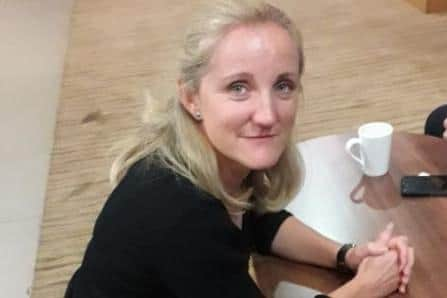The Uber of the bus world can provide a vital service for rural communities - Jenny Milne
Over the last few years, in main due to the pandemic, people’s habits and routines have changed. This could be increased working from home, online exercise classes or even the purchase of a bike or ebike. While these changes are evident, many people have defaulted to their old routines and habits. Over this same period, people living in suburban and rural areas have seen some transport changes. One of those is the introduction of Demand Response Transport (DRT). For those not so familiar with the idea, some describe it as the ‘Uber of the bus world’ whereby you can use an app or telephone to order a small bus to take you from one place to another, with maybe a diversion to pick someone else up along the way. This is particularly useful for people who don’t live near a fixed bus route and have no safe alternative such as walking or cycling.
There are a few examples in the Scottish Borders, Moray Council, Highland Council, Argyll and Bute Council and Aberdeenshire. The last-mentioned pilot is a service called Ready2Go and recently the Council announced that it is finishing early, at the end of March. The learnings from the pilot are yet to be published, but the areas served - Inverurie, Insch, Kintore, Kemnay and Oldmeldrum - have had 18 months with 5 buses providing the service. These services provide a lifeline to many rural communities and offer a flexible option to book. In fact, young people are able not only to book the service but also to travel for free owing to the under-22 Free Bus Travel policy from the Scottish Government which surely helps ingrain sustainable travel at an early age. With the pilot finishing, there are already rumbles of unhappy parents who will be loading up the car (where possible) and driving the young people to their activities, never mind the bus drivers who may lose their jobs and buses that need to find another future.
Advertisement
Hide AdAdvertisement
Hide AdIt cannot be overestimated how much value rural communities place on services such as the DRT or the bus. These transport options are more than just a mode. More often than not, the driver and passengers provide a social dynamic to what may be a non-eventful day, social inclusion for the passenger or indeed support on the way to or from the doctor. In addition, for young people living in rural areas, it introduces travelling on a public service, booking the travel and also a sense of independence. Something that ‘mum taxi’ cannot provide.


Innovations in rural transport are not new, but with a cost-of-living crisis firmly in place, rural and suburban dwellers are feeling the pinch, particularly when services are pulled. Access to a free bus versus ‘mum taxi’ makes the difference for many in their activities and involvement in society.
The role and future of the bus often makes the headlines. Sadly, for rural areas, the operation costs involved are considerable, with larger miles to be covered and many also have to double as school buses, so that the potential peak-time revenue to maintain the service is unavailable. Realistically, what is the future? Aberdeenshire Council are defaulting back to fixed route buses that operate at random times and are unlikely to serve the travel patterns (visiting the doctor, surgeries etc) witnessed during the trial. Will passengers go back to the public bus service? What will those users of the DRT do now, particularly those who live where there are no other options than to try to afford running one or two cars? Will the public look to formalised car-sharing networks or indeed rent their car out for others to use? Only time will tell.
Jenny Milne, Founder and Director, the Scottish Rural and Islands Transport Community CIC
Comments
Want to join the conversation? Please or to comment on this article.